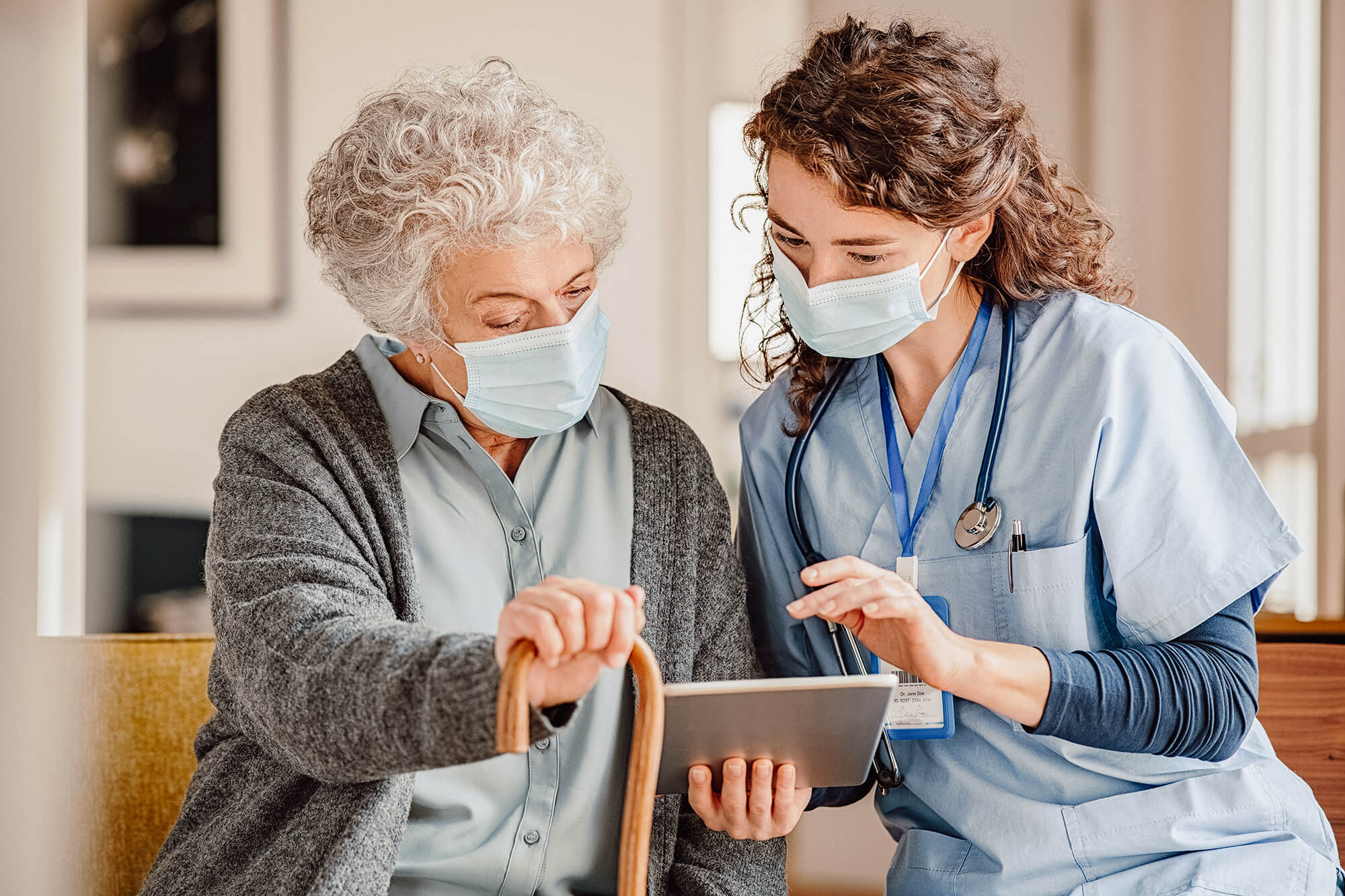
Care & Support
Discharge from hospital or rehabilitation brings not only the joy of finally being at home again, but also many challenges for the patient and his or her relatives.
Not every patient can be discharged home fully recovered and – depending on the restrictions suffered – different problems arise in everyday life.
On the one hand, the affected patients need aids to make everyday life and independence easier; on the other hand, they are dependent on the help and care of others.
Who can take care of me when my partner is at work?
A major issue for many stroke patients and their relatives is the topic of care. Often, it is no longer possible for the affected person to cope with everyday life on his or her own, and the relatives are also unable to take over the entire care and support for a variety of reasons (e.g. occupation). Depending on the patient’s need for care, there are different options.
Home care
Various services and facilities enable patients to remain in their familiar surroundings. They support those in need of care and their relatives in everyday life, so that they can organize their occupation and care, as well as support more easily. Services are based on the individual needs and include, for example: Help with housekeeping, home nursing, personal care, nutrition, mobile physio- or occupational therapies and others. If a permanet support or help is necessary, there are also facilities that provide 24-hour care.
medical home nursing
Medical home nursing is provided by certified nurses and includes only skilled nursing services. It is prescribed by the doctor and includes, for example, wound care or the administration of infusions or injections.
Geriatric day centers
Day centers offer the possibility of professional care during the day. Here, patients can take part in gymnastics or occupational therapies, get something to eat and physical care.
Some day centers specialize specifically in stroke patients. If necessary, there is also the option of a transport service that takes patients from their place of residence to the day center and back again.
INPATIENT SERVICES (OLD PEOPLE’S AND NURSING HOMES)
In some situations, such as when the need for care exceeds the ability of family members or nursing home care, a move to a nursing home may be an alternative solution.
Mobility aids
If the patient’s mobility is limited, a number of aids are available: Walkers, wheelchairs or even the installation of stair lifts can make life much easier for those affected. However, to regain independence as quickly as possible, these should not be used for longer than absolutely necessary.
To be able to master everyday life independently, there are also numerous products that can already make everyday things easier, such as spreading a sandwich, getting dressed or personal hygiene.
Just as in other areas, it is important to promote the patient’s independence when it comes to eating. Patients should only be fed if they are otherwise unable to take in sufficient food and fluids, as dehydration also increases the risk of recurrence.
Medication-Intake
An important task is to make sure that the medication is taken as prescribed and that values such as blood pressure, pulse and blood sugar are also checked regularly. Both relatives and caregivers can provide good support here. If the patient has to take various tablets spread over the day and the week, tablet boxes can be a good help.
Mobile support services
Meal delivery services offers the possibility to get a fresh meal every day. Many providers also offer a choice between normal food, light food, diabetic food, and meat-free food.
If public transportation can no longer be used, shuttle services are an option. In some regions in Austria there are also discounts on these services available (e.g. vouchers).
Cleaning services, repair services and laundry services that pick up the laundry and deliver it washed and ironed make everyday life easier.
Sources
- gesundheitskasse.at (Abruf: 11.03.2021)
- gesundheit.gv.at (Abruf: 18.12.2020)
- sozialversicherung.at (Abruf: 02.12.2020)
- pflege-professionell.at (Abruf: 11.03.2021)
- schlaganfall-hilfe.de (Abruf: 11.03.2021)
